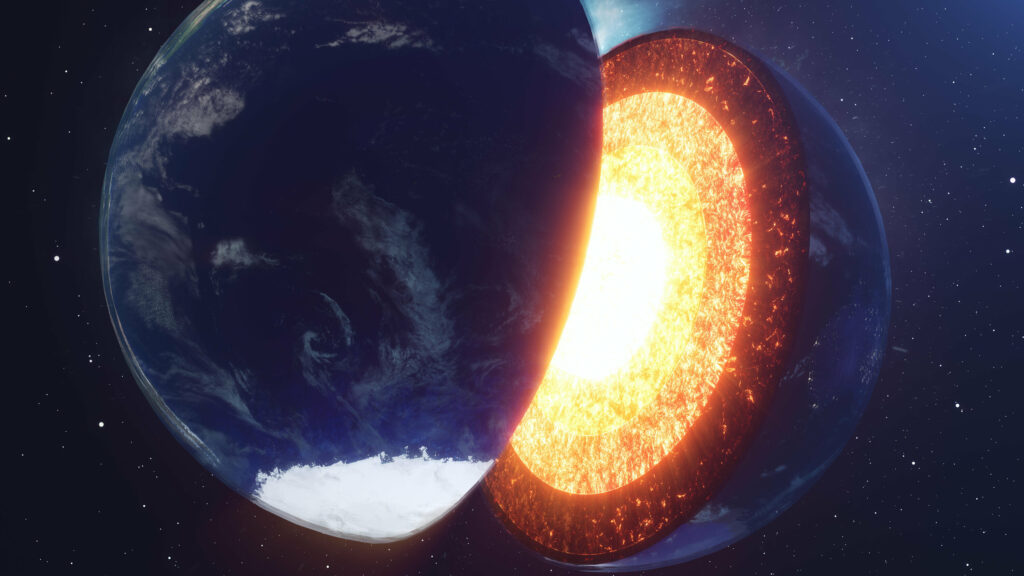As it is early January, we are all still keeping some of our recent pledges to mend our ways while trying to take the long view on our habits and the direction of our lives. And since it is far easier to fix other people’s lives than our own, we at CDN want to suggest that alarmists spend a bit of time between now and, say, February 1 thinking about their core assumptions, what it would mean if they were wrong, and how they might be able to tell. And to help them out, here’s a stunning publication from Britain’s Royal Society, focused on the general question of causality versus stochastics, that includes a section arguing that recent increases in atmospheric CO2 were caused by increases in temperature not the other way around. (See non-paywalled version of the argument here.) If it’s true, the whole man-made warming theory, and all the hugely expensive and intrusive measures proposed to combat it as well as the smugness of their self-appointed enforcers, is a huge blunder. So surely it’s worth brief serious consideration, even if you don’t want it to be true and indeed will look somewhat silly if it is.
Despite the impression given by most public and much academic commentary, the theory that rising temperature is not the result of rising atmospheric CO2 is grounded in a vital piece of common sense regarding that well-known massive climate phenomenon, the carbon cycle. As everybody knows, except when discussing man-made climate change, the cycle is a complex and dynamic one with negative gain feedbacks. Which is a polysyllabic way of saying that, rather than being inherently prone to runaway disintegration, the cycle involves self-damping mechanisms in which the more CO2 is released into the atmosphere, the more is absorbed while the less is released, the less is absorbed. It really does tend to be self-balancing, though in a very lively rather than static way with a lot of swings and overshoots on, gosh, a planetary scale which is very big.
For instance, when there’s more atmospheric CO2 plants grow better, especially in marginal environments where it’s cold, dry or both. And they grow better by absorbing CO2 more efficiently, so both existing and new plants draw more of it from the air. When there’s less CO2, plants die back and less CO2 is then absorbed.
It seems intuitive that another such mechanism is that the oceans, all else being equal, would absorb more CO2 if more of it is passing over the surface of the water. But here all else is not equal because, counterintuitively, warmer water absorbs less CO2 unlike, say, salt or sugar, because as gases absorb heat energy from the surrounding water they are more likely to get knocked back out or bounce out. (It is also true of oxygen, for instance.) Which brings us to another major, widely ignored issue: the undisputed fact that warmer water releases dissolved CO2 means if the oceans warm, for whatever reason, they will on balance degas CO2 in significant amounts.
The reason we say this widely-disregarded consideration is common sense is that we know that for most of Earth’s history there was far more CO2 in the atmosphere than there is today. This claim is not disputed. But nor is it disputed that when there was more CO2 in the atmosphere, far from tipping out of balance and falling to bits, the carbon cycle was more active, with more of the stuff being absorbed by plants, the land, and so on. Indeed evidence from ice cores going back nearly a million years, bungled in amateur fashion by Al Gore in An Inconvenient Truth, clearly shows that increases in atmospheric CO2 lag increases in temperature by something like 800 years. Which not coincidentally is roughly the gap between the Medieval Warm Period and the recent increase in atmospheric CO2.
We do not deny that humans are releasing more CO2 than we used to. But it is still quite a small fraction of the carbon cycle. So we do insist on a civil, and coherent, explanation of how our small contribution can have put the whole thing out of balance instead of stimulating it to greater absorption. Especially given the massive greening that we know has occurred in the last four decades as plants absorb more CO2 without, thus far, preventing the amount still in the air from rising.
Well, in an even more massive leap of illogic, alarmists have insisted for decades that the reason our minor contribution has a large impact is that the natural cycle does indeed absorb natural CO2, and the more of it there is the more is absorbed naturally, so nature isn’t causing the increase. Instead we are because our CO2 is somehow different and nature scorns to ingest it or sequester it. Which is awful science since nobody has ever explained a mechanism whereby plants, the soil or the oceans tell the difference and act on it.
If nature releases 95% of the CO2 every year and humans release 5%, the only rational assumption is that 95% of the CO2 that is absorbed is also natural and 5% man-made. Including by the recent greening, because there is no way the carbon cycle is preferentially absorbing the natural stuff. But in that case, if atmospheric CO2 increases anyway, the only rational assumption is that 95% of the increase is from natural sources and only 5% is from us.
In short, at this point the carbon cycle is in an expansionary phase, as it is at other times in a contractionary one, though in both cases the tendency is to head back to equilibrium and then overshoot, not to a runaway collapse. Mind you the last Glacial Maximum nearly did see the latter, from CO2 starvation wiping out most plants and nearly all animals on Earth before it mercifully started rising again. But note please that glaciations start with CO2 at a local maximum, and end with it at a local minimum, the exact opposite to what climate alarmist orthodoxy would predict.
Taking all these phenomena into account, a far more sensible hypothesis regarding CO2 and temperature would be that the carbon cycle, like the Earth is very large, complex and dynamic. And for over a century now it has been releasing carbon in larger amounts than it has been absorbing them because the planet is warming and the oceans are degassing as part of massive cycles involving staggering quantities of water, air, soil and rock and operating on a scale of centuries. The cycle, of course, still absorbs most of the natural output and most of the human as well, but some accumulates. Without causing the temperature to change in any significant way.
It might be untrue, and research should continue. But it needs to be research undertaken by people genuinely testing hypotheses on the basis of evidence, logic and common sense, not government-funded dogmatists seeking to confound and silence heretics. It’s not who alarmists think they are, or who they want to be. So at New Year’s, they should take a day or two to ponder whether they’ve somehow become a clerisy anyway and, if so, what they should do about it.
P.S. If someone is thinking we skeptics should do the same, the short answer is that we do so every day, because as contrarians we are constantly confronted with people telling us we’re wrong and wrong in reckless ways. We can’t avoid having alarmist messages thrust upon us every day; alarmists by contrast are insulated from ours and have to make special efforts to encounter skeptical arguments. That they mainly address us rudely, impugning our motives rather than our reasoning and frequently on the basis of invented “facts”, is not important. There are certainly some thoughtful, well-mannered alarmists and occasionally we hear from them. But the main point is that those who question man-made global warming orthodoxy are bombarded daily with claims that we are evil and dangerous, occasionally accompanied by an effort to refute our facts, our logic or both. And of course while we don’t agree we do periodic conscience checks, including pondering what evidence would lead us to switch our views. It is those who customarily go unchallenged, even inhabiting a carefully self-constructed echo chamber, who are unlikely to undertake this challenging process even occasionally.



And why are the oceans warming? There are recent studies correlating subsea tectonic activity with ocean temperatures. Magma is darned hot and there is lots of it.
And the alarmists side has most of the money and power.That makes being a skeptic an uphill battle.
Terrific post!
Oh, so you know some alarmists who can be reached with facts, common sense and logic? Worth a try I guess. I'll post it, but they ain't gonna like it.
"If nature releases 95% of the CO2 every year and humans release 5%,"
The author is a climate science ignoramus. No website is perfect. This article is the turkey of the week
Richard Greene
Bingham Farms, Michigan
https://honestclimatescience.blogspot.com/